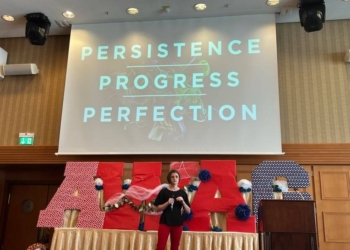Once veterans leave the strict structure of the military, the world is supposedly their oyster — or is it? The sheer number of choices as to how to earn money once that DD-214 is in hand can overwhelm, even for former service members who know they want to go into business entrepreneurship.
Should a veteran strike out on their own with a startup, for instance? Take a lower-risk route by franchising? Or maybe purchase an already-existing business through acquisition? The options can be hard to navigate.
It doesn’t have to, however. Second Service Foundation’s entire nonprofit existence is built around helping military entrepreneurs through coaching, mentoring, resources and capital — and the founders love to help this group choose between the various business models.
RELATED: VettoCEO offers training to meet military business owners at every level
“Veterans go into all sorts of businesses,” Mark Rockefeller, Second Service’s co-founder and chairman, said. “There’s a whole gamut of areas that military entrepreneurs can get into, because they have these intrinsic talents and abilities they’ve gained while in the military.”
But how to know the best fit? It all starts with closely examining one’s personality type. Are you a natural risk-taker? Are you OK with extreme discomfort on predictability of income? Do you have marketing skills, or do you excel at implementing an already-created plan from elsewhere? Are you introverted?
“The good thing about business is that there’s a way to make money with a hundred different kinds of personalities,” said Rockefeller, a former airman. “There’s no, ‘you’ve got to have these eight things.’ It’s working through your innate skills, your desires and risk tolerance, your passions.”
To that end, here’s a general idea of pros and cons of each business type:
- Startup:
-
- Pros: the path to the highest earning potential (unlimited), the greatest independence in terms of time, easy to merge with preexisting passions.
-
- Cons: extremely high-risk (around 90% fail over time, according to United States Bureau of Labor statistics), difficulties procuring funding, no guarantee of stability even after some success.
- Acquisition:
-
- Pros: grants access to existing customer base, operational infrastructure and market presence, offers more stability and predictability by having concrete data points.
-
- Cons: challenges blending into an already-existing work culture, unseen costs related to business integration after purchase.
-
- Pros: lower market risk, built-in customer familiarity and name recognition, provided marketing materials, corporate support.
-
- Cons: lower money-making potential, potentially expensive franchise fees
Once an aspiring entrepreneur is ready to pull that business trigger, Rockefeller said the biggest mistake they can make is foregoing business coaching.
“Entrepreneurship is going to be harder than you think and twice as expensive, but there’s nothing that can’t be conquered with good coaching, mentoring and a lot of grit,” he said. “Talk to at least one person who has done each of these types of businesses, because trying to navigate it by yourself is tough.”
To that end, the team at Second Service, including its executive director, is working hard on expanding their coaching modules for military-connected entrepreneurs. The free online service is meant to “help them find their happy place” in business, said Clare Rockefeller, co-founder and executive director.
“You can work with coaches to figure out whether you would be better at being a franchisee or whatever,” she said. “That’s the focus of the Second Service Foundation this coming year, really expanding our coaching modules.”
Besides their foundation, the Rockefellers recommend the online resources at the D’Aniello Institute for Veterans and Military Families at Syracuse University, Warrior Rising (another nonprofit focused on military-connected entrepreneurs), and Brewing the American Dream for those interested in the food and beverage entrepreneurship.
Because whatever your entrepreneurial dream may be, it’s possible with hard work, education and help.
“The military community makes amazing entrepreneurs, because we’re problem-solvers,” Clare said. “There’s almost a culture the military thrives in where they have to act like entrepreneurs already.”































